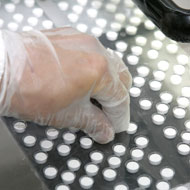NOAH criticises antibiotic report

The report criticises the use of the highly regulated route of treatment to groups of animals through medicated feed and water.
The National Office of Animal Health (NOAH) has criticised the government for failing to recognise steps that have already been taken to protect animal health.
They argue that a recent report, published by the All Party Parliamentary Group on Antibiotics, fails to recognise steps that have already been taken by farmers and vets to prevent disease and minimise antibiotic use on farms where possible.
The UK's Department of Health states that the main driver of antibiotic resistance in human medicine is antibiotic use in people, not animals. However, NOAH say that the animal medicines industry recognises its responsibilities and believes that it is essential that veterinary antibiotic are used responsibly to preserve their long term efficacy.
Dawn Howard, NOAH's chief executive, comments: "NOAH fully supports the need for responsible prescribing, by both the veterinary and medical professions.
"On the veterinary side, NOAH has been very actively involved with responsible use initiatives, such as the RUMA alliance, which publishes guidelines supporting responsible use and has produced an action plan on livestock antibiotic resistance to implement government strategy."
Vets and farmers work to reduce the need for antibiotics through vaccination where available and by appropriate on-farm animal husbandry. However, NOAH believe that some of the ideas suggested in the report could be counter-productive.
The report advocates measures to reduce stress in animals to try to reduce susceptibility to disease, but it criticises the use of the highly regulated route of treatment to groups of animals through medicated feed and water.
The report also suggests certain classes of antibiotics should be reserved for humans. NOAH argues that veterinary surgeons need to retain the full range of currently licensed antibiotics in order to be able to treat the range of conditions that affect animals. If they were not available, then animal welfare would undoubtedly suffer.
Dawn Howard says: “NOAH is disappointed not to have been consulted in advance of the publication of the report. We believe that responsible use of veterinary antibiotics is the best way to help preserve these precious medicines for us all, without compromising the health and welfare of our animals.”



 Birmingham Dogs Home has issued an urgent winter appeal as it faces more challenges over the Christmas period.
Birmingham Dogs Home has issued an urgent winter appeal as it faces more challenges over the Christmas period.